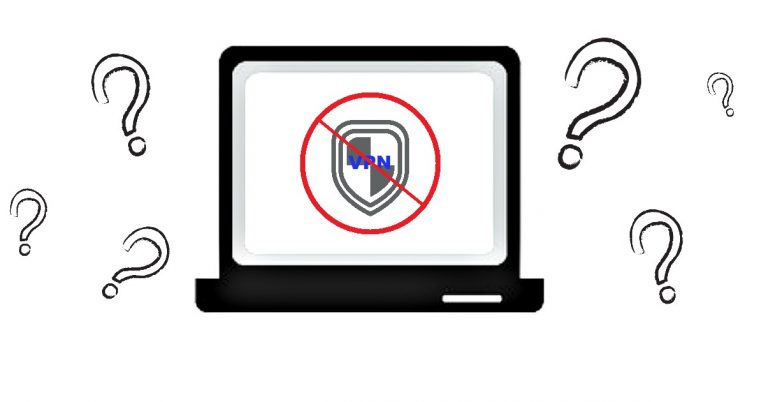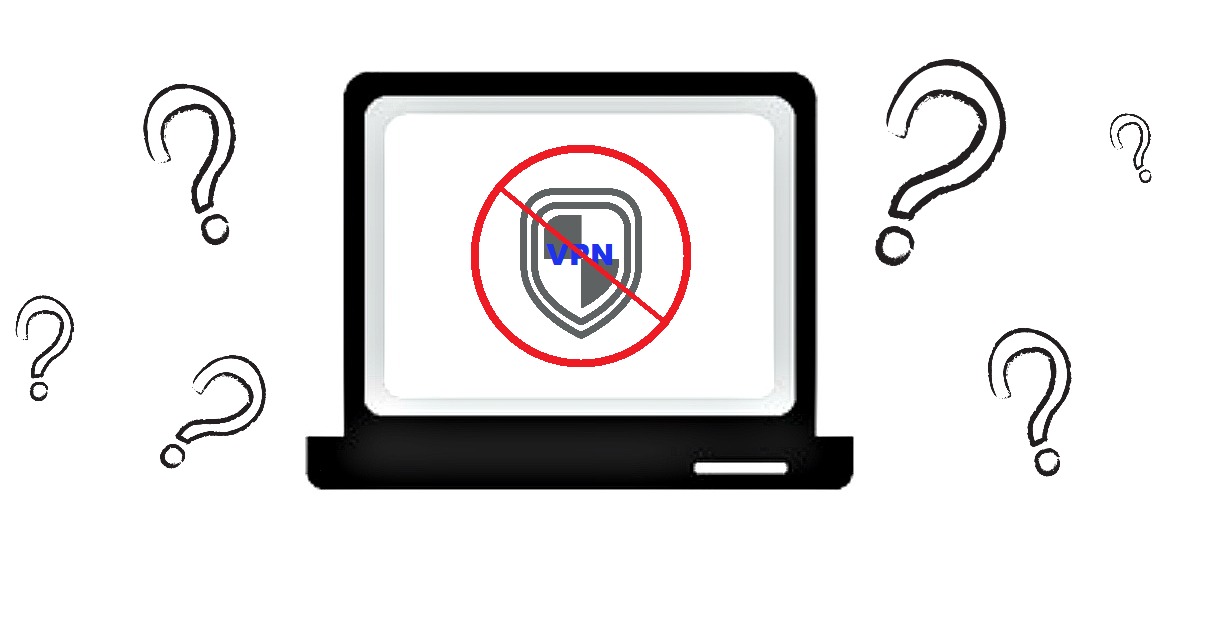Are VPNs Legal? The Countries That Ban VPNs in 2025
VPNs are legal in most cases, but it’s not always that straightforward. There are some legal grey zones to consider, plus location and use case can make all the difference in the legality of VPN use. Given the implications of breaking the law, it’s important to understand when and where VPNs become illegal before using one.
Even where VPNs are legal, doing illegal activities with them is not permissible, meaning you are bound to be prosecuted under the laws of your country. A VPN can help conceal your identity, but activities such as selling drugs, accessing copyrighted material, and spreading viruses are still illegal and can obviously land you in trouble.
On the other hand, VPNs can also safeguard you from illegal online threats and malicious parties, so using one to secure your connections is highly recommended. My top pick is ExpressVPN — it has an audited no-logs policy and is based in a privacy-friendly country with robust security features to keep you safe online. You can also try it risk-free since it has a 30-day money-back guarantee*.
Are VPNs Legal?
In most countries, using a VPN is legal for protecting your privacy and preventing data leaks. It becomes illegal if used for illegal activities such as accessing banned content or bypassing government restrictions. Of course, a government wouldn’t necessarily know you were accessing blocked sites, but you would have committed a crime nevertheless.
Countries that allow VPNs include all members of the 5/9/14 Eyes Alliance. Governments in these countries are allowed to request access to users’ browsing data from the internet service providers (ISPs). That’s why it’s a good idea to use a VPN in these regions if you value your privacy.
Where Are VPNs Illegal?
Several countries impose strict regulations or outright bans on VPN usage. These governments often view VPNs as tools for bypassing censorship and accessing restricted content, which conflicts with their efforts to control the flow of information.
| Countries that ban VPNs altogether | |||
|---|---|---|---|
| Belarus | Iraq | North Korea | Turkmenistan |
| Countries that heavily restrict VPN use | |||||
|---|---|---|---|---|---|
| China | Iran | Oman | Turkey | Russia | United Arab Emirates |
How Countries Enforce Bans on VPNs
When countries ban VPNs, they often rely on a mix of technical measures, legal regulations, and strict enforcement to restrict their use. Governments may block access to known VPN servers by instructing ISPs to identify and disrupt traffic associated with VPNs. In some cases, deep packet inspection (DPI) tools are used to detect encrypted data that indicates VPN usage.
Legal enforcement typically follows, with penalties ranging from fines to imprisonment. Countries with stricter internet censorship laws often pass regulations that compel ISPs to cooperate with the government. Some governments also require individuals to register with authorities before using a VPN, creating another layer of control.
Finally, VPN providers in these countries might face licensing requirements or be forced to limit their services. This limits access to effective VPNs, leaving users with fewer options to use in the country. Countries with effective VPN bans often combine these strategies, making it difficult for everyday users to safely access the content they need.
Legal Uses of VPNs
Because some people use VPNs for nefarious purposes, others are under the impression that VPNs are illegal. However, this is far from the truth. There are so many legitimate uses of a VPN that it simply outweighs the negatives. Below are some of the most common and popular uses of a VPN:
- For government organizations and corporations to secure their workplaces. It’s very important to add an additional layer of security to protect sensitive data, which if leaked, could result in serious loss of intellectual property. In more secure environments (like investment banks) employees are not allowed to directly access their workstations from home. Instead, they use a VPN complimented with RSA technology to make sure their data remains secure.
- As privacy protection and to prevent third-party interception. There are several different scenarios in which a VPN is necessary to keep sensitive data private. For instance, authors and reporters who write about bold and sensitive topics may need reliable privacy protection to keep them safe from retaliation. Others simply don’t want search engines to track their search history and serve them targeted ads. Using a VPN ensures that your IP address remains secure, and search engines cannot identify the real person behind the VPN.
- To secure personal data and keep connections private while using public WiFi. Public WiFi should only be used for casual browsing and never for secure transactions. It’s incredibly easy to eavesdrop, hack, or contaminate your connection with malware. Using a VPN to tunnel all your data over a secured network will protect you when using an unsecured WiFi setup.
- As a preventative measure against third-party eavesdropping on VoIP communication. While WhatsApp uses encryption and is overall pretty secure, there are other services that can be much easier for malicious third parties to intercept. So if you want your communications to remain private, it’s best to use a VPN while making VoIP calls.
- To secure your connection while using streaming services. A VPN connects you to a private server, so you can safely watch Netflix or other popular platforms from anywhere.
Illegal Use of VPNs
Using VPNs to engage in illegal activities crosses a clear line. Activities such as hacking, fraud, or accessing prohibited content while using a VPN remain illegal, regardless of the privacy a VPN provides. It’s important to recognize that using a VPN does not provide immunity from legal consequences when engaging in illicit activities.
In countries where VPNs are restricted, authorities may view any VPN usage with suspicion. Even in places where VPNs are legal, using them to bypass local laws could lead to severe penalties. Ultimately, using a VPN does not change the laws that apply to online behavior; it simply alters how data is transmitted across networks.
Best VPNs in 2025
- ExpressVPN — The fastest VPN we’ve tested on nearby and faraway servers, so it’s great for HD streaming from anywhere, torrenting, gaming, and smooth browsing. It offers strong privacy and security features to prevent third parties from snooping on your online activities.
- CyberGhost — One of our top picks for streaming with its optimized servers for platforms like Netflix, Hulu, BBC iPlayer, and more. Plus, its user-friendly apps make it easy to secure your connections.
- Private Internet Access — Packed full of customizable security settings and a massive server network, offering a range of connection options you can tailor according to your needs.
Editor's Note: We value our relationship with our readers, and we strive to earn your trust through transparency and integrity. We are in the same ownership group as some of the industry-leading products reviewed on this site: Intego, CyberGhost, ExpressVPN, and Private Internet Access. However, this does not affect our review process, as we adhere to a strict testing methodology.
FAQs on VPN Legality
Are VPNs legal in the US, UK, and Brazil?
Yes, VPNs are legal in the US, UK, and Brazil. These countries allow VPN usage primarily for privacy and security reasons. However, certain activities remain illegal, whether you use a VPN or not, such as downloading copyrighted material. While you can freely use VPNs in these regions, you should avoid illegal actions like hacking or fraud, which could lead to serious penalties.
Can the police or government track VPNs?
Yes, governments can track VPN usage under certain conditions. While VPNs mask your online activity, law enforcement may request data from VPN providers in specific cases, such as criminal investigations. Some VPNs keep logs, which could be subpoenaed. Additionally, certain countries have VPN restrictions and may use surveillance tools to detect VPN traffic.
Are VPNs legal for streaming and Netflix?
Yes, VPNs are legal for streaming in most cases, but using them to access region-locked content on platforms like Netflix can violate their terms of service. While Netflix may not penalize individual users, it often blocks VPN servers, making it difficult to use a VPN with the platform.
Streaming with a VPN isn't illegal in countries where VPN use is allowed. They’re powerful privacy tools that can be used to keep your connection secure during any online activity you engage in, including streaming.
Can I use a VPN on crypto platforms?
Yes, you can use a VPN on crypto platforms, but it's crucial to verify the platform's terms. Some cryptocurrency exchanges may restrict access from certain regions, and using a VPN to bypass these restrictions might breach their policies. Additionally, regulations in your country may affect whether it's legal to trade cryptocurrencies using a VPN, especially in jurisdictions with heavy internet controls.
Conclusion
The majority of countries permit VPN usage, provided that no illicit activities are conducted through the VPN connection. Therefore, as long as the VPN is not utilized for any illegal purposes, you should generally encounter no issues.
I personally favor net neutrality and believe that internet freedom should be available to everyone. There should be no restriction or favoritism by the ISP when it comes to providing content over the internet. It helps in keeping the internet transparent, useful, and a fair playing ground for everybody.
Your online activity may be visible to the sites you visit
Your IP Address:
216.73.216.5
Your Location:
US, Ohio, Columbus
Your Internet Provider:
Some sites might use these details for advertising, analytics, or tracking your online preferences.
To protect your data from the websites you visit, one of the most effective steps is to hide your IP address, which can reveal your location, identity, and browsing habits. Using a virtual private network (VPN) masks your real IP by routing your internet traffic through a secure server, making it appear as though you're browsing from a different location. A VPN also encrypts your connection, keeping your data safe from surveillance and unauthorized access.





Please, comment on how to improve this article. Your feedback matters!